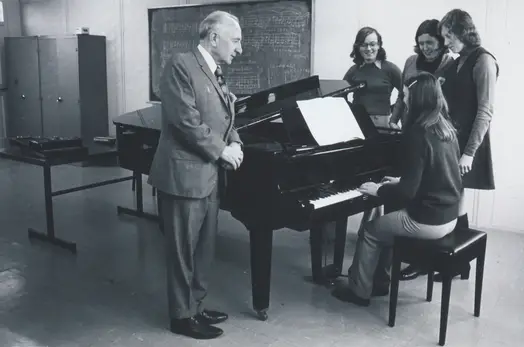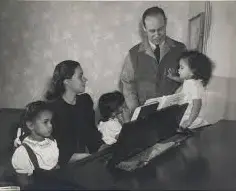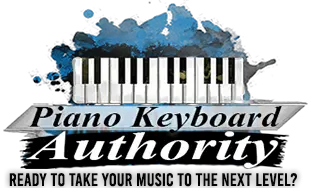 Introduction
Introduction
If you want to learn piano by yourself, you may want to ask: how hard is it to learn piano on your own? Basically, a piano or keyboard is an instrument that is self-sustained: this means that you can control all aspects of a performance or song – the bass, the highs, the mids and sometimes a percussive strike of the keys. In short, a piano or keyboard can be a one-person band’s best friend.
Struggles when Learning the Piano on Your Own
How exactly difficult is learning the piano on your own? Here are some common challenges that you may face:
1. Memorizing Chord Theory
Let’s face it – there’s nothing more troubling than memorizing which key goes with which key and whatnot. A C major can be easily distinguished from a C minor, but what about F# minor? D# major? How about the 7ths, augmented and diminished chords? These struggles are what usually puts off a person from learning the piano in the first place, especially if you’re not very good with memorization.
2. Differentiating Key Sounds and Notes
If you are not very good with remembering keys then you may be in bad luck if you try to learn piano on your own. Unless you have a personal tuner or a computer, it can be hard for you to distinguish what key is this sound and what key is that chord.
3. Getting the Right Tempo
Unless you have a metronome, a backing track or a music teacher to tap the keyboard or piano when you play, getting your own sense of tempo can be a little hard on your own. While tempo can be variable when playing classical music, if you’re playing alongside a live drummer then you’re bound for trouble if you can’t sync well.
4. Not Enough Practice Time
Most people could be too busy with their personal lives and work that finding time to practice the piano on your own can be hard to do, especially because learning a piece can take some time.
5. Too Many Distractions
Even if you have headphones that are noise-canceling, if there are many people around the house then practicing your piece on the keyboard piano could be quite hard as well.
6. Piano Keyboard Lacks Features/Durability
There are some instances that even if you want to learn how to play the piano on your own, the piano keyboard itself is not very durable, not very good-sounding or lacks features to help a beginner. For instance, there aren’t accompaniment rhythms to help you develop your sense of timing, or the keys are not designed properly that they leave gaps in the middle.
7. Artist Insecurity
Many people quit because they see others who are better and they start to question their own skills. This is when we say “everyone starts off as a beginner somewhere”.
What are the Benefits of Learning Piano on your Own?
Self-tutorial can be hard, but trust us – there’s always a silver lining in every cloud. Here are some of the benefits of learning the piano on your own, despite those struggles:
1. Self-confidence
Anyone who’s learned something on his or her own is definitely more self-confident than one who owes his or her knowledge to someone else. By proving that you can learn the piano on your own, you’ll get more boost in your self-esteem because you’ve learned something that you taught yourself!
2. Practice at your own pace
Unlike with a music teacher, you can practice slowly or hurriedly depending on  the pace that you like.
the pace that you like.
You can go for hard pieces first and save the easy ones later, or take the easy pieces first – it’s up to you!
With solo practicing, you make your own lesson plans!
3. Less expensive
Most music teachers and tutorial services can be quite expensive, especially with high-class musicians. If you want to save money and just learn the basics, you can just buy yourself a beginner-friendly piano/keyboard, watch some YouTube tutorials and the rest is on its way. Many piano keyboards out there can be bought for a cheaper price and they already have beginner features like chord guides, lessons and so much more!
4. Less insecurity
Music schools can sometimes make you feel more insecure about your skills, especially if you see others perform better than you. With only yourself to play, you can focus more on yourself rather than feeling insecure about others. You learn to love yourself and your music in the process and no one can easily judge or compare you to other players if you’re learning on your own.
5. Practice anywhere
Learning the piano on your own is also very convenient for those with smaller  home spaces. Many keyboards nowadays are compact, travel-friendly and battery-operated. Some can even practice while at a park and make music there!
home spaces. Many keyboards nowadays are compact, travel-friendly and battery-operated. Some can even practice while at a park and make music there!
6. You practice self-discipline
When you learn on your own, you basically develop the skill of disciplining yourself, which is important in any workplace and not just in music. You know how to control yourself, the notes and hone your skills by setting goals for yourself.
7. Develop your own style
The best thing you can get from self-learning is that you develop your own style. You won’t be like your music teacher or your entire music class – your music will be you. For example, if other people around you like pop music but you want to dive into classical music then no one can stop you or judge you!
Conclusion
Given those insights, we can conclude that learning the piano on your own takes not just skill, practice, discipline and determination but also a good keyboard piano to learn on. The rewards of learning piano on your own are quite good, especially if you want to be a full-fledged musician someday, or if you just want to have a talent or skill that you can call your own.
In the next article, we’ll give you some solutions on how to solve such problems when learning the piano on your own!
